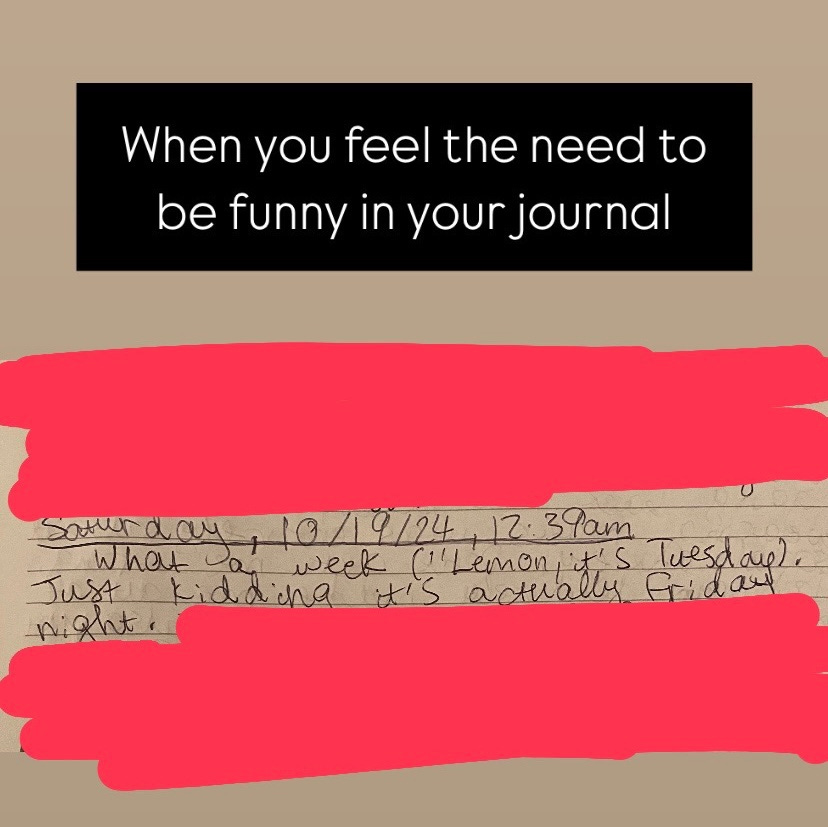Comedian Chris Fleming has a bit about “vibe dysphoria”, a term he coined for the phenomenon “where the most toxic person you’ve ever met over-relates to woodland creatures on social media.” I can’t do it justice, but it’s about people who are evil portraying themselves as adorable and innocent.
Here’s a related issue I’ve noticed: the concept whereby people ascribe morality to a completely random and morally neutral thing they do. They’ll post things like, “People are hating on me and I’m just over here eating my soup.” I know the subtext is supposed to be, “I’m just minding my business,” but it’s still kind of funny. Surely bad people—if you believe in bad people—have eaten soup before. And I say that as someone who enjoys a comforting soup. To be honest, I’d love if eating soup made me a good person. Here are a few other things that I wish indicated a good person, because that would mean I’m a good person:
Pacing around your apartment
Anxiously avoiding your dating app messages for a ridiculously long time until you feel physically unable to look at them
Journaling
Trying to make jokes in your journal
Sharing those jokes on your Instagram Story when you realize that your journal is not a sentient being that can laugh
Reading directly from your journal in therapy because expressing your feelings freely without looking at a paper makes you nervous (and also because you might forget things otherwise)
Talking to yourself
Watching ASMR with the screen brightness turned off (so, listening to ASMR)
Eating food without watching anything, EXCEPT when you’re eating ice cream and then you MUST watch something on YouTube
Staying up too late
Putting lists in all your Substack posts
Worrying that you’re a bad person
On the topic of that last one, I have actually heard something to that effect. Something along the lines of, “If you’re worried you’re a bad person, you’re really not.” Naturally, I get relieved when I hear this, because I must not be a bad person if I’m worried about it. But the problem is, this causes me to no longer think I’m a bad person, so wouldn’t that make me a bad person by the aforementioned logic? Does that mean the only way to truly achieve being a good person is to be completely impossible to convince that you’re a good person? That doesn’t seem right—aren’t we supposed to love ourselves? The key to life is being confident, but also being kind to others, and yet the key to being kind to others is hating yourself? I don’t know, something’s not adding up.
Maybe it’s just that all people who have that worry are good (or at least not bad), but plenty of people who don’t have that worry are also good (or again, at least not bad). Kind of like how a square is a rectangle but a rectangle isn’t a square.
It doesn’t help that calling yourself a good person feels so obnoxious. More obnoxious than calling yourself physically attractive, because as they say, it’s what on the inside that counts. Saying you’re “good” where it truly counts is pretty self-congratulatory, is it not?
The whole concept of “bad people” is so nebulous. Some people will say no one is a bad person, which is pretty unhelpful when you’re trying to get that person to tell you that you’re not a bad person. If they think no one is a bad person then it’s not exactly comforting that they don’t think you are. It’s like, okay, I didn’t shift your entire view of humanity by being so awful that you believe in bad people. Yay? Of course, looking for external validation isn’t great, but you already got a glimpse of what’s going on inside my brain. It’s a bit of a mess. But don’t worry I’m working on it in therapy, reading my journal entries aloud and whatnot.
Maybe Jemima Kirke was right: I’m thinking about myself too much. (After all, I did just imply that her answer to this Instagram Q&A was about me specifically.)
But don’t judge me, I’m just over here eating my soup. Thanks for reading!
XOXO,
Zola





